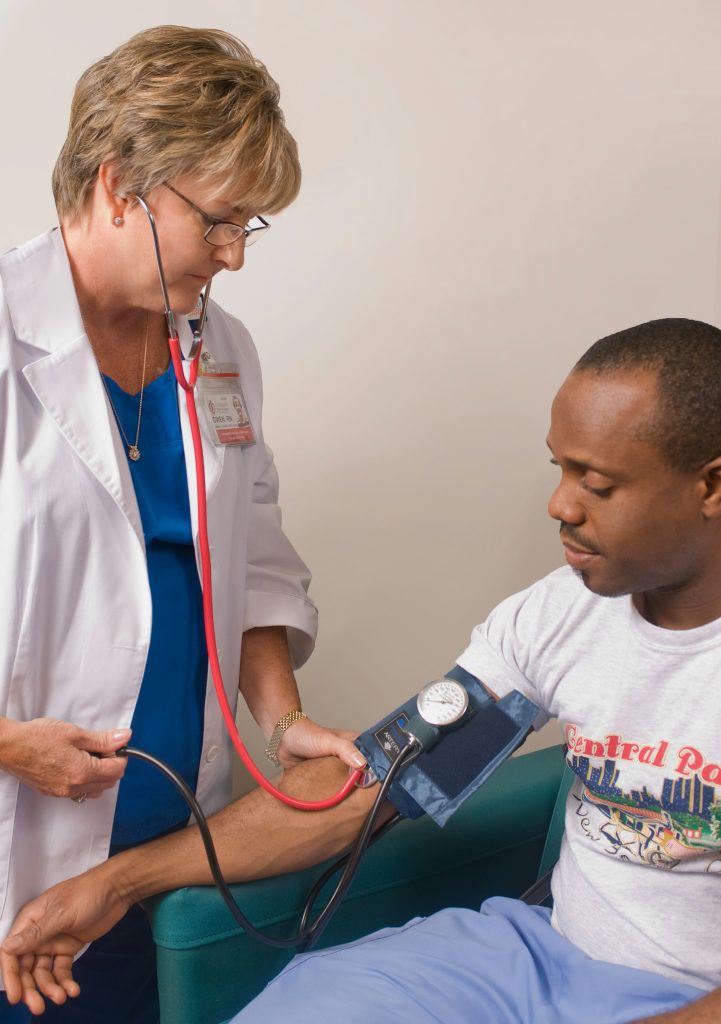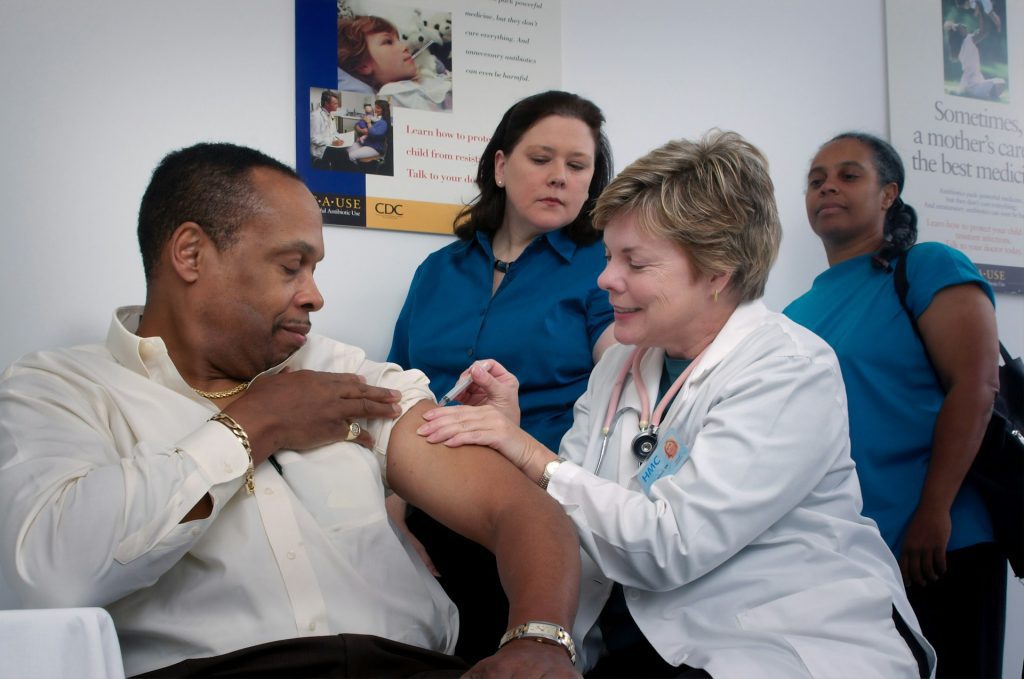CVS Health likes to position itself as a healthcare company. And technically, that’s true—it’s not just the pharmacy you pass on every other corner. The company includes CVS Pharmacy retail stores, Caremark (pharmacy benefits management), MinuteClinic health services, Aetna health insurance, long-term care pharmacy, and various other healthcare-related businesses.
But let’s be clear about what this means for most jobs. If you’re working in a CVS store—whether as a cashier, pharmacy technician, or even store manager—you’re working retail. Retail with a healthcare component, sure. But you’re still dealing with customers, metrics, inventory, and all the chaos that comes with retail operations.
The company employs hundreds of thousands of people across its various divisions. That scale means lots of job opportunities, but it also means you’re part of a massive corporate machine where individual stores and employees can feel like just numbers.
Read Also: Primary Care Physician in the USA: Everything You Need to Know
Types of CVS Health Careers
 CVS offers more career paths than most people realize, so let’s break down what’s actually available and what each path involves.
CVS offers more career paths than most people realize, so let’s break down what’s actually available and what each path involves.
In-store and retail roles
These are where most people start and where most jobs exist. Retail store associates work the sales floor and register, help customers find products, stock shelves, and handle typical retail tasks. It’s straightforward work that doesn’t require prior experience, but it’s also demanding—you’re on your feet all day, dealing with a constant flow of customers, and expected to maintain the store while also pushing various CVS programs and promotions.
Beauty consultants specialize in the health and beauty section, advising customers on cosmetics and skincare products. It’s essentially a retail sales role with slightly more specialized product knowledge.
Operations supervisors and managers oversee store operations, manage staff, handle scheduling, and deal with the administrative side of running a location. Store Manager in Training is CVS’s development program for people who want to move into store leadership. You’re learning the business while working in a store, preparing to eventually run your own location.
Pharmacy careers
These are the heart of what CVS does. Pharmacists work in community pharmacy (the stores), specialty pharmacy, or long-term care settings. This is professional work requiring a Doctor of Pharmacy degree and state licensure. You’re verifying prescriptions, counseling patients, managing drug therapy, and handling an enormous volume of prescriptions under constant time pressure.
Pharmacy technicians support pharmacists by counting pills, managing inventory, processing insurance claims, and handling administrative tasks. CVS has a LearnRX Technician Training Program that trains new techs, which is good because many people start with no pharmacy background. The work is fast-paced, detail-oriented, and requires you to manage multiple tasks while dealing with customers who are often frustrated about wait times, insurance issues, or costs.
Here’s what people don’t always realize about retail pharmacy work: you’re constantly behind. The prescription volume is relentless. You’re juggling filling scripts, answering phones, dealing with insurance rejections, counseling patients, administering vaccines, and hitting corporate metrics—all simultaneously. One pharmacy tech on Reddit described the mental stress as so severe that they left CVS for hospital pharmacy work, where the environment was calmer and more focused on patient care than metrics.
Clinical and healthcare roles
These exist but are distinct from retail pharmacy. Advanced practice providers like nurse practitioners and physician assistants work in MinuteClinic locations or in-home care settings, providing primary care services. Nurses work in clinical or in-home settings. Dietitians provide nutrition counseling. Medical assistants and scribes support clinicians with documentation and patient care.
These roles are actual healthcare positions with less of the retail chaos. If you’re a clinician, you’re focused on patient care rather than managing inventory, dealing with upset customers about coupon policies, or stocking shelves. The work is still demanding, but it’s demanding differently.
Corporate and office roles
They cover everything from finance and accounting to HR, legal, marketing, data analytics, IT, and digital health innovation. These are professional positions requiring relevant education and experience. CVS also has substantial customer care operations supporting members and providers, plus warehouse and fulfillment roles managing their distribution network.
Corporate positions are completely removed from the retail environment. You’re working in an office (or remotely, depending on the role), focused on business strategy, operations, technology, or specific functional areas. The work experience is nothing like what store or pharmacy employees deal with.
Student and entry-level programs
They include internships, leadership development programs, and initiatives like “myCVS Journey” designed to build career awareness and opportunities in healthcare for young people. These programs can be solid entry points if you’re early in your career and trying to get your foot in the door.
Read Also: Home Health Care Agency in the USA- Everything You Should Know
What You’ll Actually Make
 Compensation varies wildly depending on your role, and that matters when you’re deciding whether CVS is worth your time.
Compensation varies wildly depending on your role, and that matters when you’re deciding whether CVS is worth your time.
Entry-level retail store associates
This typically makes between $15 and $22 per hour based on recent job listings. That’s not terrible compared to some retail, but it’s also not great when you factor in the demands of the job and the cost of living in most areas. If you’re making $16/hour and getting 25 hours per week, that’s $400 before taxes—about $1,600 per month. That might work as supplemental income, but it’s tough as your primary source of support.
Pharmacy technicians
They earn somewhat more than regular retail associates, but the pay still isn’t amazing given the responsibility and stress involved. You’re handling medications that could literally harm people if you make mistakes, dealing with insurance complexity, and working under intense time pressure—often for wages not much higher than someone stocking shelves.
Pharmacists
They make significantly more, with Glassdoor reporting $60 to $74 per hour for staff pharmacist roles. That translates to roughly $125k to $155k annually for full-time work. That’s decent money. But many CVS pharmacists will tell you they’re earning it—the workload, stress, and metrics pressure are intense. You’re often the only pharmacist in a high-volume store, responsible for everything that happens in that pharmacy, with corporate breathing down your neck about prescription counts, immunization numbers, and customer satisfaction scores.
Benefits
These are described as comprehensive for full-time employees: health insurance, 401(k), paid time off, and employee discounts. But here’s the catch that shows up in employee discussions: many CVS jobs are part-time, and part-time employees get limited or no benefits. One Reddit user noted bluntly: “Part-time time no health insurance.” That’s a huge issue if you’re working 20-30 hours per week but don’t have access to health insurance through your employer—especially ironic when your employer is literally a healthcare company.
Read Also: Medical Aid Prices in the USA
The Reality of Working at CVS Health Careers
Let’s talk about what employees actually report, because the recruiting materials only tell you the polished version.
Metrics pressure is real and relentless.
CVS, like most large retail pharmacy chains, is obsessed with metrics. Prescriptions filled per hour. Customer satisfaction scores. Vaccination numbers. Loyalty program sign-ups. Credit card applications. You’re constantly being measured and compared.
For pharmacy staff, this creates an impossible situation. You’re trying to provide safe, accurate pharmaceutical care while also being pushed to move faster, do more vaccinations, sell more programs, and hit arbitrary targets. One employee wrote on Reddit: “People belittle me…when metrics are met.” The stress isn’t just about doing the work—it’s about doing the work while being evaluated on metrics that sometimes conflict with actually providing good care.
For store employees, you’re pushing CVS programs and products while dealing with typical retail customer service. The job isn’t just helping people find things—it’s selling them on loyalty programs, coupons, store credit cards, and whatever else corporate is pushing that quarter.
The workload can be overwhelming.
Understaffing seems to be a common complaint. You’re expected to maintain productivity and hit metrics even when you don’t have enough people scheduled. Pharmacy technicians describe scenarios where they’re covering multiple tasks simultaneously with lines of frustrated customers waiting and phones ringing constantly.
Pharmacists often work alone or with minimal tech support, responsible for verifying hundreds of prescriptions per shift while also counseling patients, handling problems, administering vaccines, and managing everything that goes wrong. There’s no buffer. You can’t just take a break when you’re overwhelmed because people are waiting for medications they need.
Part-time work dominates many locations.
Like a lot of retail operations, CVS relies heavily on part-time employees to minimize labor costs and maintain scheduling flexibility. This is fine if you only want part-time work. It’s problematic if you need full-time hours and benefits but can’t get them. Multiple employees mention the part-time structure as a significant downside—you’re working for a massive healthcare company but don’t have access to healthcare benefits yourself.
The environment varies dramatically by location.
Some stores are well-managed with decent teams. Others are chaotic, understaffed, and poorly led. Your experience depends heavily on your specific store manager, pharmacy manager, and district leadership. CVS is so large that there’s no single consistent culture—it’s highly localized.
Corporate roles face their own issues.
Some candidates report disorganized hiring processes for corporate positions, with slow communication and disjointed interview experiences. In 2024, CVS announced plans to cut roughly 2,900 corporate jobs to reduce costs. That tells you something about stability and how the company views its workforce. When a company is cutting thousands of jobs, the remaining employees often end up absorbing those responsibilities without additional compensation.
Read Also: What Is New York State of Health? Your Complete Guide to NY’s Health Insurance Marketplace
CVS Health Careers Growth—What’s Actually Possible?
CVS does promote from within, and the pathways are fairly clear, especially for retail and pharmacy roles.
You might start as a store associate, move into a shift supervisor or operations role, then enter the Store Manager in Training program, and eventually manage your own location. From there, some people move into district or regional management.
In pharmacy, you might start as a technician, get certified, potentially become a lead tech or pharmacy operations manager, and in some cases transition into pharmacy management roles. Some techs go back to school to become pharmacists, though that requires a Doctor of Pharmacy degree—a significant educational and financial commitment.
Clinical roles have their own advancement paths within healthcare settings. Corporate roles follow typical business career trajectories within functional areas.
CVS offers development programs, mentorship, and training opportunities. The company does invest in building talent internally, which is good. But you need to ask yourself whether the career path they’re offering actually appeals to you.
Managing a CVS store might sound like an advancement from being an hourly associate, but it also means you’re salaried, working 50+ hours per week, dealing with staffing problems, handling difficult customers and employees, and being accountable for store performance while often not having the resources or support you need. Some people thrive in that role. Others find it exhausting and not worth the modest salary increase.
For pharmacists, there’s not a ton of upward mobility unless you move into corporate pharmacy leadership, which is competitive and takes you away from patient care. Many pharmacists end up doing the same job for decades, which is fine if you love it but frustrating if you’re looking for career progression.
Read Also: What You Need to Know About United Healthcare: Plans, Costs, and What Nobody Tells You
Understanding the Retail Pharmacy vs. Healthcare Tension
Here’s something important to understand about working at CVS: there’s an inherent tension between being a healthcare provider and being a retail operation.
As a pharmacist or pharmacy tech, you’re a healthcare professional. You’re responsible for patient safety, accurate medication dispensing, counseling, and clinical judgment. That requires time, attention, and focus.
But CVS is also a retail business trying to maximize efficiency and profit. That means keeping labor costs down, maximizing prescription volume, pushing additional services, and treating the pharmacy somewhat like a high-volume production operation.
These goals sometimes conflict. Good patient care often requires slowing down, having conversations, catching potential problems, and doing thorough medication reviews. Retail efficiency requires moving fast, processing volume, keeping lines short, and hitting metrics.
Employees caught in that tension often feel like they’re being asked to do impossible things—provide excellent care while also working at a pace that makes excellent care difficult. That’s a big part of why some pharmacy professionals leave retail chains for hospital pharmacy, independent pharmacies, or different healthcare settings where the focus is more clearly on patient care than on retail metrics.
If you’re considering a pharmacy role at CVS, understand that you’re working in retail pharmacy, not purely clinical pharmacy. The environment, pace, and priorities reflect that reality.
Read Also: Small Business Health Insurance: Your Complete Guide to Making the Right Choice
Pros and Cons—The Honest Assessment
The pros exist, even if they’re not always dramatic.
CVS offers accessible entry points into healthcare-adjacent work. You don’t need extensive experience to start as a store associate or get trained as a pharmacy tech. For people trying to break into healthcare, it’s a legitimate path.
There are genuinely diverse career options within the company. You can work retail, pharmacy, clinical care, corporate functions, technology, logistics—the range is real. And because CVS is so large, internal mobility is possible. You might start in a store and eventually transition into a corporate role or clinical position.
The training and development programs for pharmacy techs and new employees are structured. CVS invests in onboarding, which helps people succeed in their roles even without prior experience.
Benefits for full-time employees are comprehensive. If you can secure a full-time position, the health insurance, retirement benefits, and paid time off are solid.
There’s real impact potential in pharmacy and clinical roles. You’re helping people manage their medications, stay healthy, and navigate the healthcare system. That work matters, even when the environment makes it difficult.
But the cons are significant and affect daily experience.
The metrics pressure creates constant stress. You’re evaluated on numbers that don’t always align with good patient care or realistic workload expectations. This is especially pronounced in pharmacy roles.
Understaffing seems endemic in many locations. You’re expected to maintain productivity with fewer people than the work actually requires. This creates burnout and makes every shift harder than it needs to be.
Part-time work dominates, which means many employees lack benefits despite working for a healthcare company. The irony of working for CVS without health insurance isn’t lost on employees.
Pay is modest for most positions. Store associates and pharmacy techs aren’t making great money, given the demands and stress of the work. Even pharmacists, while paid decently, often feel underpaid relative to the workload and responsibility.
The retail environment wears people down. Difficult customers, long hours on your feet, repetitive tasks, and constant demands take their toll. This isn’t unique to CVS, but it’s real.
Job security isn’t guaranteed. The 2024 corporate job cuts demonstrate that even a massive company will eliminate positions when it suits its financial goals.
Read Also: Health Equity in the USA: What It Really Means and Why We’re Failing at It
CVS Health Careers: Is CVS Right for You?
This depends entirely on what you need from a job and where you are in your career.
CVS makes sense if:
You’re looking for accessible entry into healthcare or retail work without needing specialized credentials upfront. The barrier to entry is low for many positions.
You’re a student or early-career professional who needs flexible scheduling and wants healthcare-related experience. Part-time work with flexible hours can fit around school.
You want to become a pharmacy technician and need training. CVS will train you, certify you, and give you experience that transfers to other pharmacy settings.
You’re a pharmacist who wants community pharmacy work and can handle high-volume retail environments. Some people genuinely prefer community pharmacy to hospital or clinical settings.
You’re interested in corporate healthcare roles and have the credentials for professional positions. CVS’s scale means opportunities in various business functions.
CVS probably isn’t the best fit if:
You need full-time hours with benefits but can only access part-time positions. The benefits gap for part-time employees is a real problem.
You’re a healthcare professional who wants to focus on clinical care without retail pressures. Hospital pharmacy, clinical settings, or independent pharmacies might suit you better.
You’re sensitive to metrics-driven environments where you’re constantly evaluated on productivity numbers. The metrics pressure is intense and doesn’t suit everyone.
You need a low-stress work environment. Retail pharmacy is inherently high-stress, and CVS’s operational model amplifies that.
You want strong job security and stable employment. Recent job cuts and the general instability in retail pharmacy mean security isn’t guaranteed.
Read Also: What Is the Best HealthCare Service in the UK?
How to Navigate Applying and Working at CVS Health Careers
If you decide to pursue CVS Health careers, here’s how to approach it strategically.
Use the official CVS Health careers website
Use this to search for roles by category—retail, pharmacy, clinical, corporate. The site is organized by career area, which helps you target what you’re actually interested in.
Be specific about what you want.
Don’t just apply to everything. A pharmacy tech position is completely different from a corporate data analyst role. Know which path you’re pursuing and tailor your application accordingly.
For store and pharmacy roles
Emphasize customer service experience, reliability, and any healthcare or retail background. They’re looking for people who can handle fast-paced customer-facing work and learn their systems.
For corporate and clinical roles
Expect more structured hiring processes with multiple interviews. These positions require specific skills and credentials, so highlight relevant education, certifications, and professional experience.
Ask about hours and benefits during the interview process.
Clarify whether the position is part-time or full-time, what the typical schedule looks like, and what benefits are available. Don’t assume full-time status or benefits—ask explicitly.
If you’re entering a pharmacy
understand what you’re signing up for. Talk to current pharmacy employees if possible. Shadow a shift if CVS allows it. Retail pharmacy is demanding work, and you should know what it entails before committing.
Consider CVS as a stepping stone rather than a destination
This is if you’re in certain roles. Many people use their CVS pharmacy tech experience to build their resume before moving to hospital pharmacy, independent pharmacies, or other healthcare settings. Store experience can lead to retail management elsewhere. The experience is transferable even if CVS itself isn’t your long-term goal.
Network internally if you’re already employed.
CVS Health careers are massive. This means internal mobility is real. If you start in a store but want to move into corporate or clinical roles, build relationships, express interest, and look for internal opportunities.
Read Also: In-Demand Careers in the USA
CVS Health Careers: The Bottom Line
CVS Health careers are massive. The company offers many types of jobs across healthcare and retail. That scale creates opportunity—there are always openings, internal mobility exists, and you can build various career paths.
But scale also creates problems. You’re part of a huge corporate system that prioritizes metrics, efficiency, and cost control. Individual employees can feel expendable. Workloads can be unrealistic. Part-time work without benefits is common. The tension between healthcare values and retail operations creates daily stress, especially in pharmacy roles.
For some people at certain career stages, CVS works fine. Students getting experience, people entering healthcare, professionals building specific skills—there are legitimate reasons to work there. But it’s rarely anyone’s dream job. It’s often a practical choice or a transitional role rather than a career destination.
If you’re considering CVS Health careers, be realistic about what you’re choosing. The pay is modest. The work is demanding. The environment is often stressful. Benefits depend on whether you can secure full-time status. Career growth exists but requires navigating a large corporate hierarchy.
Go in with open eyes. Use the experience strategically. Take care of your mental health and wellbeing. And remember that starting at CVS doesn’t mean you’re stuck there forever. Many people use it as a foundation for moving into other healthcare or business roles that better suit their goals and values.
The company isn’t evil, but it’s not particularly generous or employee-focused either. It’s a large corporation operating in a challenging industry. Your experience will depend heavily on your specific role, location, and personal resilience. Some people thrive there. Many others burn out and leave. Know yourself and what you’re willing to tolerate, and make your decision accordingly.





